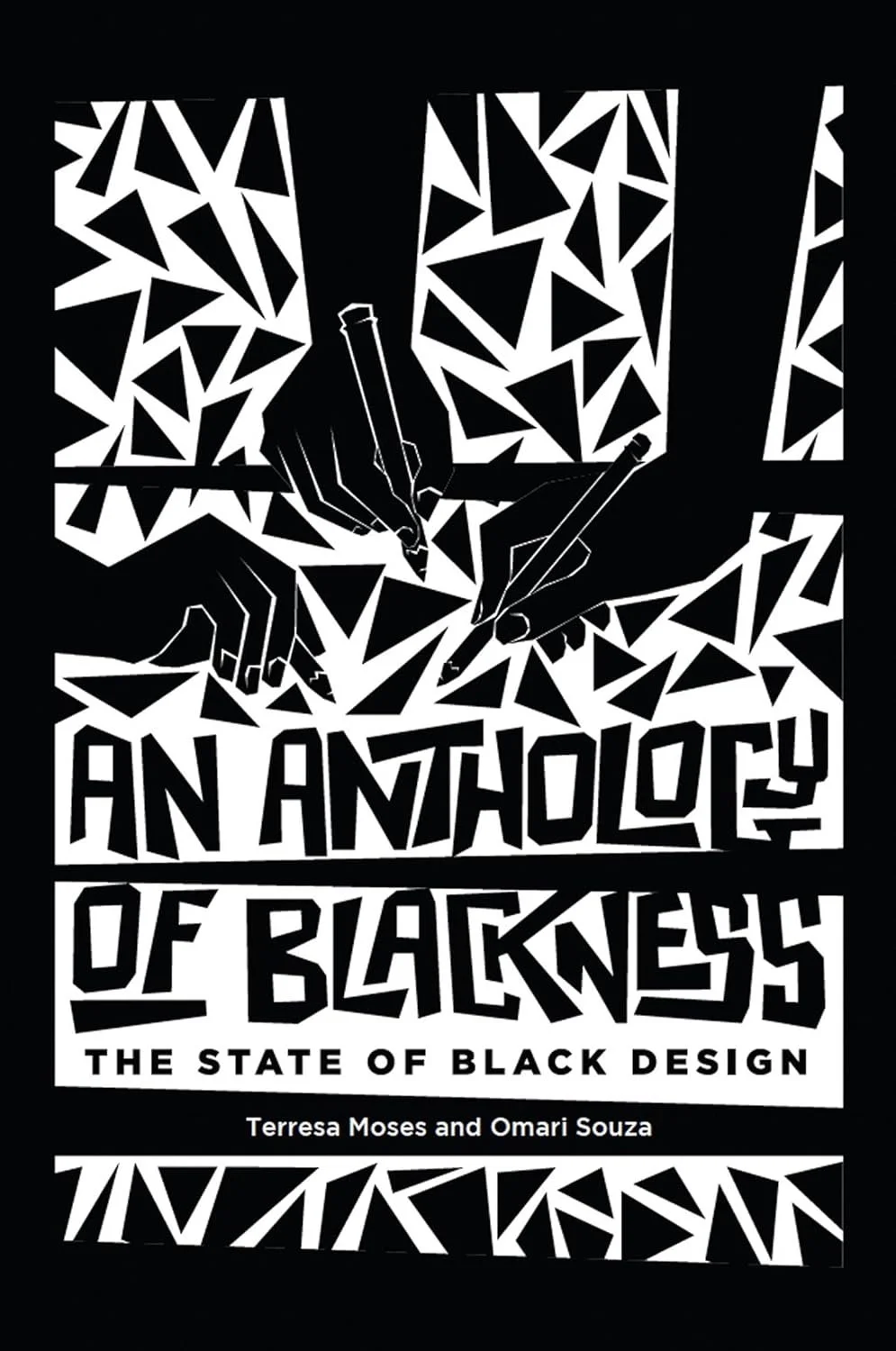
An Anthology of Blackness
The State of Black Design
Terresa Moses (Editor), Omari Souza (Editor)
An adventurous collection that examines how the design field has consistently failed to attract and support Black professionals—and how to create an anti-racist, pro-Black design industry instead.
An Anthology of Blackness examines the intersection of Black identity and practice, probing why the design field has failed to attract Black professionals, how Eurocentric hegemony impacts Black professionals, and how Black designers can create an anti-racist design industry. Contributing authors and creators demonstrate how to develop a pro-Black design practice of inclusivity, including Black representation in designed media, anti-racist pedagogy, and radical self-care. Through autoethnography, lived experience, scholarship, and applied research, these contributors share proven methods for creating an anti-racist and inclusive design practice.
The contributions in An Anthology of Blackness include essays, opinion pieces, case studies, and visual narratives. Many contributors write from an intersectional perspective on race, gender, sexuality, ethnicity, and ability. Each section of the book expands on community-driven concerns about the state of the design industry, design pedagogy, and design activism. Ultimately, this articulated intersection of Black identity and Black design practice reveals the power of resistance, community, and solidarity—and the hope for a more equitable future. With a foreword written by design luminary Elizabeth (Dori) Tunstall, An Anthology of Blackness is a pioneering contribution to the literature of social justice.
Design Against Racism
Creating Work That Transforms Communities
Omari Souza
A historical and philosophical exploration of the impact of design on underserved communities, examining the field’s shortcomings as well as its potential to create positive change. Through essays that delve into history and practice, and case studies that demonstrate practical strategies, Design Against Racism explores how designers of all disciplines can address, through their work, the legacies of racism and oppression.
Design profoundly influences culture. The heart of this book is its powerful blend of essays on design history, illustrated case studies, and discussions of practical methods to approach design work, adapted from the restorative justice movement. It explores how design as a professional practice and academic discipline directly affects historically excluded communities, offering frameworks and examples that foster collective improvement.
Topics from author Omari Souza, founder of the annual State of Black Design conference, and contributing design professionals include:
Unveiling the White Gaze: The Narrative of Whiteness and Colonial Nostalgia
Language as a Tool for Marginalization—and Resistance
Hip-Hop Architecture: Transforming Spaces through Culture and Innovation
Afrofuturism as a Design Strategy
Whose Knowledge Is It? Reclaiming Histories, Narratives, and the Plurality of Knowledge
Nonhierarchical Engagement with Communities—Anti-Racist Design Community Pop-Up
This is a critique of design and a practical handbook that will teach designers and educators how a restorative justice approach can transform their design practice to counteract and fight racism.
TIMELY AND ESSENTIAL TOPICS: Thought-provoking essays from leaders in design diversity offer an anti-racist approach to design practice based in an understanding of history, a focus on community building, and a commitment to inclusion.
AUTHOR & CONTRIBUTORS: Omari Souza is an Assistant Professor of Communication Design at the University of North Texas and co-host of the highly acclaimed minisode podcast The Design of Business | The Business of Design. Contributors include preeminent design professionals George Fourlas, Shamika Klassen, Kaleena Sales, Zariah Cameron, Lesley-Ann Noel, Cassini Nazir, Yolanda A. Rankin, Soniyah Robinson, and Danielle Lake.
Perfect for:
Student and professional design practitioners of all disciplines, including graphic designers, product designers, architects, and more
Course adoption for design programs
Anyone eager to explore the themes of anti-racism and decolonizing design


